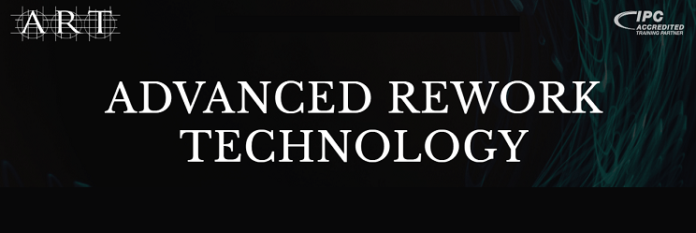
Advanced Rework Technology Ltd (A.R.T.), the leading independent provider of IPC-certified and bespoke training services for the electronics assembly industry, is providing constantly-updated courses that help prevent component damage during electronic assembly.
Comments A.R.T.’s Managing Director and Master IPC trainer Debbie Wade: “Modern electronics assembly is a complicated and intricate process that uses many different materials, machines, and techniques. Component damage is a challenge for any electronics assembler, but adhering to best practices as a matter of principle will help to avoid potential health and safety violations, financial costs and further electronic damage or failure, and will increase product performance and assembly efficiency.”
Electronic components and products risk many types of damage whilst on the assembly line, including:
- Electronic Discharge Damage: This can result in immediate damage to sensitive components or it can lead to component failure further down the line.
- Mechanical stress: Bending, dropping, and cracking are some of the ways that components can become damaged during assembly.
- Thermal damage: Overheating during soldering can lead to the alteration of fundamental electronic properties.
- Moisture, corrosion, and rust: Water can corrode certain metals, cause short circuits, and rust over time.
- Overcurrent and overvoltage: Components that are subject to currents or voltages beyond their maximum ratings can degrade over time or destroy immediately.
- Reverse polarity: Connecting components in reverse can cause instant damage, especially in diodes, capacitors, and ICs.
- Chemical damage: Improper cleaning agents or exposure to harmful chemicals can corrode contacts, leads, and solder joints.
However, there are also a variety of methods and practices that can be put in place to help prevent damage in both the short and long term. A.R.T has created a series of principles that should be followed, with checking on a regular basis, to mitigate against damage. The company also delivers bespoke and IPC-approved training courses that equip manufacturing teams with the knowledge and skills to handle sensitive components with care, master the use of essential tools like solder paste and stencils, and implement best practices in ESD protection.


















